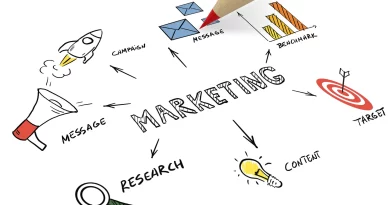The Future of Work: How AI is Transforming Workflows
As artificial intelligence (AI) continues to evolve, its impact on the workplace is becoming increasingly profound. From automating routine tasks to providing advanced insights, AI is revolutionizing the way we work. This transformation is not just about replacing human effort but enhancing it, allowing us to focus on more strategic and creative aspects of our jobs. In this article, we will explore how AI is transforming workflows and the future of work.
Automation of Routine Tasks
One of the most significant ways AI is transforming workflows is through the automation of repetitive tasks. Tasks such as data entry, scheduling, and basic customer inquiries can be automated using AI-powered tools. This not only increases efficiency but also reduces the likelihood of human error. For example, AI-driven chatbots can handle customer service inquiries 24/7, providing instant responses and freeing up human agents to deal with more complex issues.
Enhanced Decision-Making
AI’s ability to process and analyze vast amounts of data quickly and accurately is a game-changer for decision-making. AI algorithms can identify patterns and trends that might not be immediately obvious to human analysts. This enables businesses to make data-driven decisions with greater confidence. For instance, predictive analytics can forecast market trends, helping companies to strategize and stay ahead of the competition.
Personalization and Customization
AI allows for a level of personalization and customization that was previously unattainable. In marketing, AI can analyze consumer behavior and preferences to deliver personalized content and product recommendations. This level of customization enhances customer experience and increases engagement. Similarly, in HR, AI can tailor training and development programs to meet the specific needs of individual employees, boosting productivity and job satisfaction.
Improved Collaboration and Communication
AI-powered tools are also enhancing collaboration and communication in the workplace. Virtual assistants and AI-driven project management tools can streamline workflows by automating task assignments and tracking progress. Natural language processing (NLP) technologies facilitate better communication by providing real-time translation and transcription services. This is particularly beneficial for multinational companies with a diverse workforce.
Predictive Maintenance
In industries such as manufacturing and logistics, AI is being used for predictive maintenance. By analyzing data from sensors and equipment, AI can predict when machinery is likely to fail and schedule maintenance before a breakdown occurs. This proactive approach reduces downtime and maintenance costs, significantly improving operational efficiency.
Skill Augmentation
AI is not just about automation; it is also about augmentation. AI tools can augment human skills by providing real-time assistance and insights. For example, in healthcare, AI can assist doctors by analyzing medical images and suggesting possible diagnoses. In finance, AI can help analysts by providing real-time market analysis and trading recommendations. This augmentation allows professionals to leverage AI to enhance their expertise and deliver better outcomes.
Ethical Considerations and Workforce Transition
As AI continues to transform workflows, it is essential to consider the ethical implications and the impact on the workforce. Organizations must ensure that AI is implemented responsibly, with transparency and fairness. Additionally, there will be a need for workforce transition, as some jobs may become obsolete while new roles are created. Investing in reskilling and upskilling programs will be crucial to prepare employees for the AI-driven future.
Conclusion
The future of work is being reshaped by AI, bringing about significant changes in workflows across various industries. By automating routine tasks, enhancing decision-making, enabling personalization, improving collaboration, facilitating predictive maintenance, and augmenting human skills, AI is driving a new era of productivity and innovation. However, as we embrace these advancements, it is vital to address the ethical considerations and support workforce transition to ensure a positive and inclusive AI-powered future.
As we move forward, organizations that leverage AI effectively will be well-positioned to thrive in the dynamic and competitive landscape of the future. The key lies in embracing AI as a tool for enhancement, rather than replacement, and preparing the workforce to harness its full potential.








